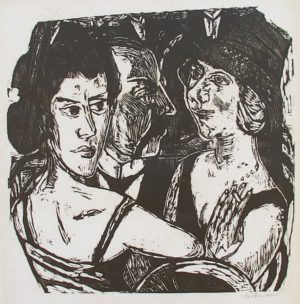BECKMANN, Max

Max Beckmann (1884–1950) was a German modernist artist whose printmaking played a pivotal role in shaping early 20th-century expressionist art. While Beckmann is widely known for his bold paintings, his graphic work—particularly etchings, drypoints, and lithographs—was central to his practice and artistic identity.
Beckmann began producing prints in earnest during World War I, using the medium to express his intense psychological and social commentary. His prints are characterized by stark contrasts, dynamic lines, and often unsettling imagery, reflecting themes of war, urban alienation, mythology, and the human condition. Notable series such as Die Hölle (The Hell, 1919) encapsulate his raw emotional response to postwar trauma.
Throughout his career, Beckmann embraced printmaking as a medium for experimentation and narrative complexity. His graphic works remain essential to understanding both his personal vision and the broader Expressionist movement. Today, his prints are held in major museum collections worldwide, affirming his legacy as one of the 20th century’s most powerful printmakers.
Discover the powerful and expressive prints of Max Beckmann, where bold lines and intense imagery reveal the complexities of the human condition in the 20th century.


